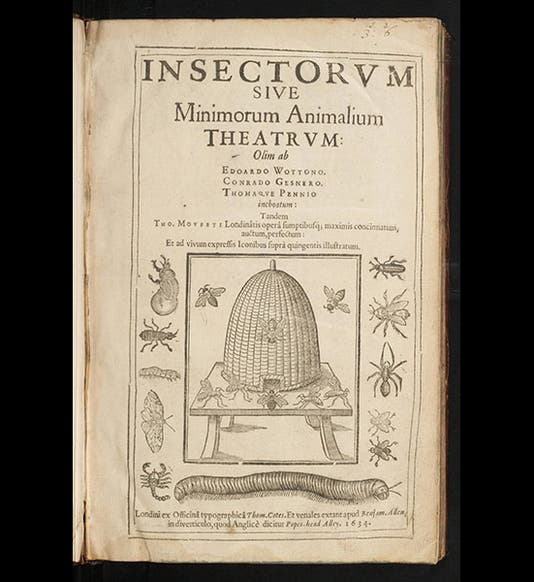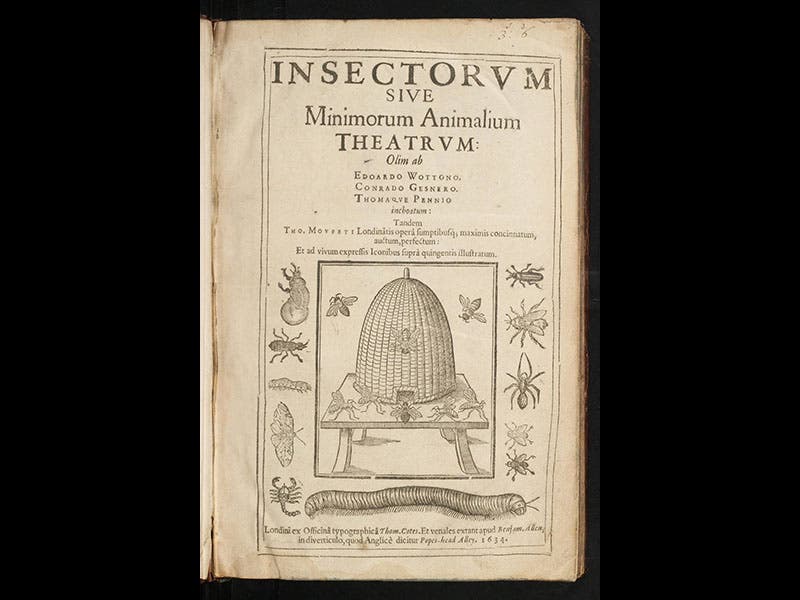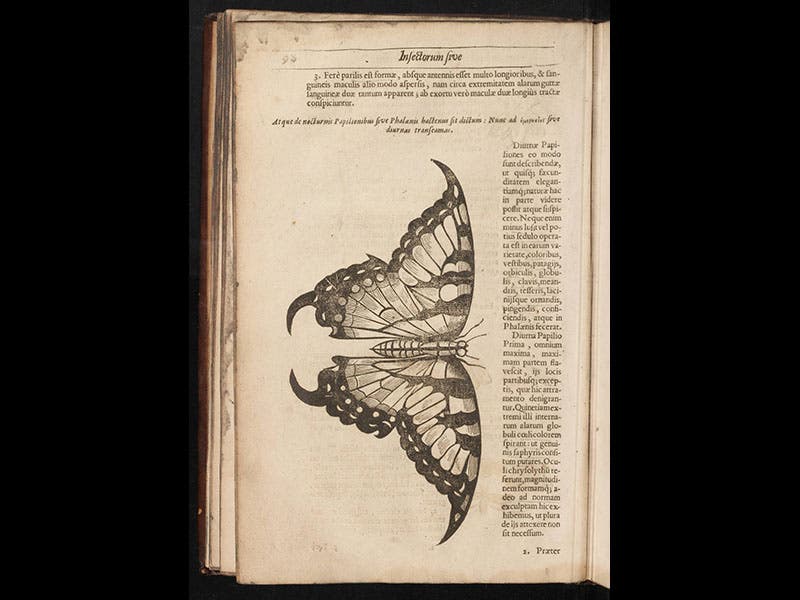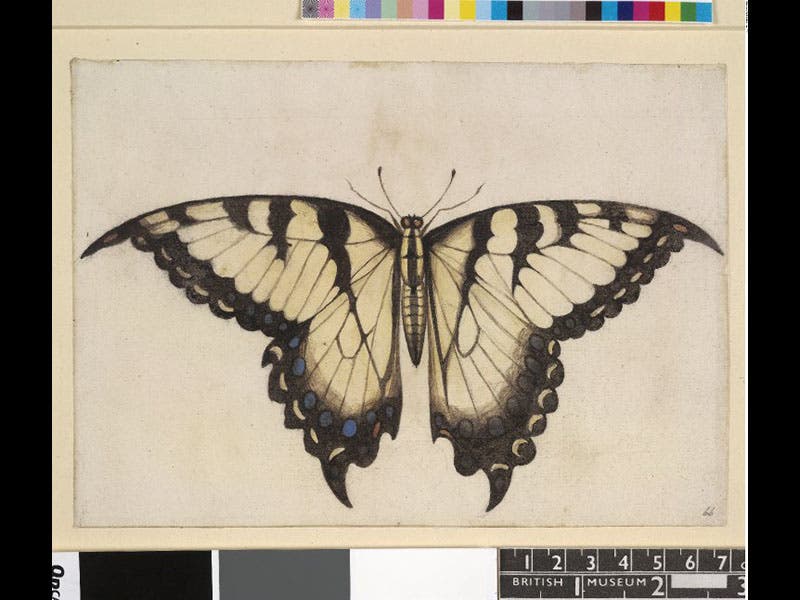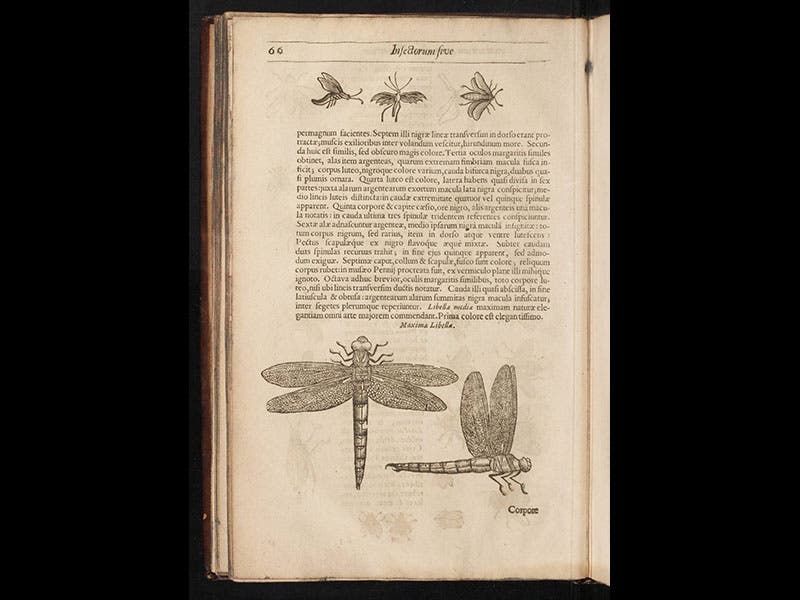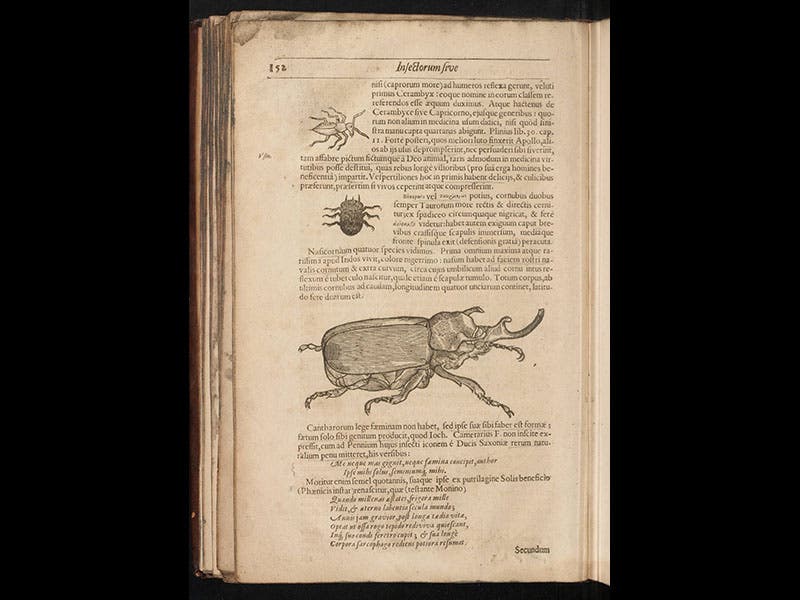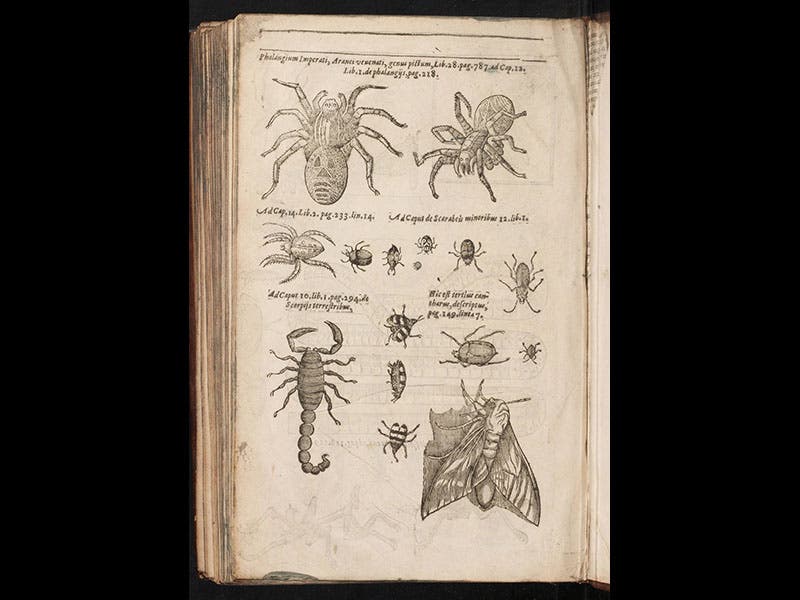Scientist of the Day - Thomas Moffett
Thomas Moffett, an English naturalist, died June 5, 1604, at the age of about 51. Moffett lived on Lime Street in Elizabethan London, which one scholar has recently identified as home to quite a number of gardeners, naturalists, and collectors, many of them expatriates from the Netherlands. Another of that community was Thomas Penny, who had been compiling a massive volume on insects from the writings of earlier naturalists such as Conrad Gesner and Edward Wotton, supplying his own illustrations. Penny could not find a publisher and then died, so Moffett took over the project, paring down much of Penny’s text and adding a considerable section on bees, his own special interest, and he too tried to get into print, without success. Then Moffett died, and the manuscript sat around for another thirty years, until it was finally brought to light and published in 1634 as Insectorum sive minimorum animalium theatrum . A new woodcut title page was provided (see first image above), and Penny's illustrations were converted to woodcuts, some more successfully than others. The tiger swallowtail is quite striking (second image) and was based on a watercolor made by John White when he was in North Carolina, and which still survives in the British Library (third image). Other woodcuts from the book show dragonflies (fourth image) and a rhinoceros beetle (fifth image). The book has an errata section at the very end, which is not unusual; what is surprising is that many of the errata consist of pictures rather than text (sixth image). All these images are from the copy in our History of Science Collection. Dr. William B. Ashworth, Jr., Consultant for the History of Science, Linda Hall Library and Associate Professor, Department of History, University of Missouri-Kansas City. Comments or corrections are welcome; please direct to ashworthw@umkc.edu.

